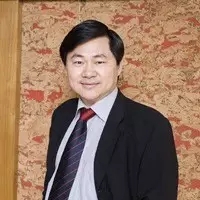【China Daily】Wang Huiyao: Effective policies can help returnees find jobs
2018年5月21日
Governments at all levels must also work to ensure the full implementation of such measures
The report delivered by General Secretary Xi Jinping to the 19th National Congress of the Communist Party of China in October emphasized that talent is a strategic resource for national rejuvenation and international competitiveness. Outstanding students who return to China after studying abroad with advanced knowledge and skills are representative of this talent pool. Overseas students have played a pivotal role in China’s modernization since the founding of the People’s Republic of China, especially at the beginning of reform and opening-up in 1978.
The status of Chinese overseas students has changed significantly after 40 years of development. In 2017, a record 480,900 overseas students returned to China. By the end of 2017, the total number of Chinese studying abroad was around 5.2 million. It is expected that around 3.1 million will choose to return to China after finishing their studies, accounting for 83.7 percent of those who successfully complete their studies.
Since the 18th CPC National Congress in 2012, the number of returned overseas students has continued to climb, reaching a total of 2,231,600. This accounts for more than 70 percent of the total number of returnees since the start of reform and opening-up.
A range of social and policy factors have helped form this wave of overseas students returning to China, including a desire to reunite with family, employment pressure overseas and the growing opportunities to be found by returning to China, especially in recent years. Government support for employment and entrepreneurship for returned overseas students has also contributed to the tide.
Family reunion is one of the main reasons for overseas students returning to China. Given China’s economic development and aging population, for overseas students, especially those who are an only child, feelings of familial responsibility are often a major factor in the decision to return home.
In addition, Chinese students overseas are finding it more difficult to secure jobs, as some countries have tightened rules on employment and the status of overseas students in recent years, while at the same time such students are at a disadvantage because they know less about the local environment and labor market. Other factors that have prompted overseas students to return to China include the limited space for career progression, pressures of life abroad and safety issues.
"Pull" factors persuading students to return to China include the great potential for career development at home and supportive policies. The government has intensified efforts to encourage innovation and policy support for returned students. Since Premier Li Keqiang launched the mass entrepreneurship and innovation initiative, all levels of government in China have increased support for small and micro enterprises, mass entrepreneurship and innovation. This has made many overseas students enthusiastic to return home to seek opportunities for entrepreneurship and employment. In turn, business success stories of students who have returned to China encourage more overseas students to follow this path.
Various preferential policies have been introduced at the central and local levels to attract overseas students to return home. At the national level, there is the Thousand Talents Plan and the Ten Thousand Talents Program; at the local level, there are programs such as Beijing’s Overseas Talent Aggregation Project and Shenzhen’s Peacock Plan. Under new policies, overseas students can qualify for tax-exempt car purchases, eased settlement and residence, benefits regarding employment and entrepreneurship funding, and preferential policies for academic research and entrepreneurship.
While the government has created sufficient policy conditions to encourage overseas students to return to China, in the future, we should work harder to improve the level of government services to better attract and retain talent. We should focus on creating a better environment so that such talent can develop to their full potential.
To attract overseas students back to China, in addition to optimizing the overall environment to nurture talent, government services for employment and entrepreneurship should be fine, deep and detailed. Targeted and effective government services are indispensable for the future development of returned overseas students.
Many localities provide customized services tailored to overseas returnees at different stages of development. These experiences can be further integrated and refined so that targeted services can be expanded to more regions. For example, a Thousand Talents Plan product marketing service center has been established that offers policy information, entrepreneurship training and management consulting, as well as platforms for interactive communication and the commercialization of innovation.
For enterprise development, we encourage and provide some funding for high-level talent to take on leadership roles such as organizing international academic conferences and seminars. We also try to resolve practical difficulties, such as providing preferential treatment for high-level talent in areas such as immigration and medical care.
At the same time, we should improve the financial system to resolve challenges that overseas returnees face. This includes expanding financing channels such as establishing innovation funds for overseas students, direct subsidies, low-interest loans and venture capital funds. This will help nurture a generation of returnee-led businesses that possess intellectual property and bright market prospects. We must also work to build and refine an assessment and guarantee mechanism for technology companies, encouraging venture capital investment in new projects and enterprises.
Governments at all levels must not only formulate policies, but also work to ensure the full implementation and effectiveness of these policies. It is also important to absorb feedback from returned students on these policies and to better understand their actual needs regarding entrepreneurship and employment. This will help to unlock the vast potential of returned students in supporting modernization in the new era.

Dr. Wang Huiyao is president of the Center for China and Globalization, the largest independent think tank in China, with over 100 researchers and members of staff.
From China Daily,2018-5-18






